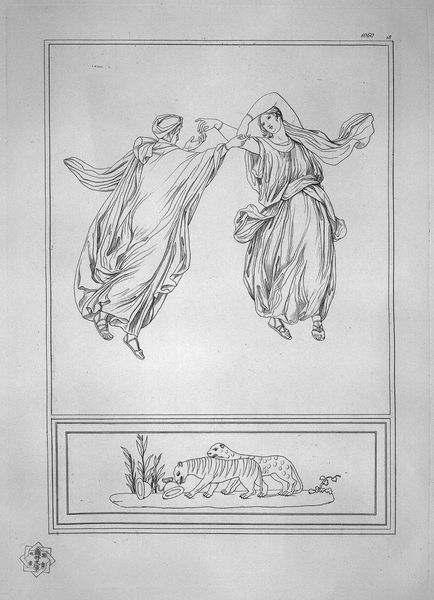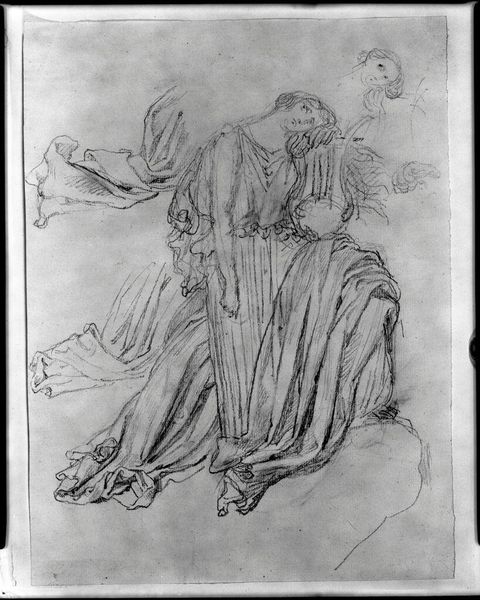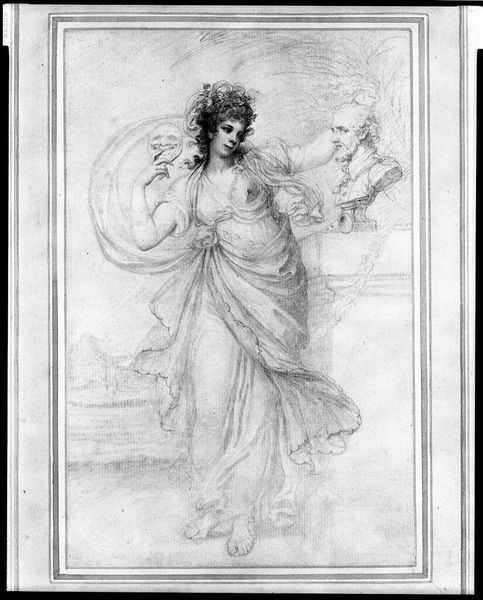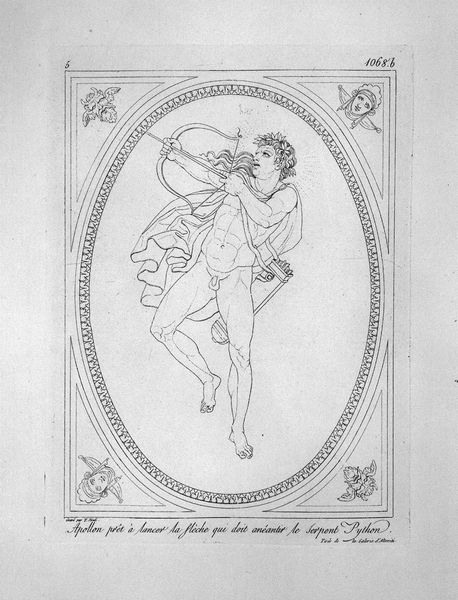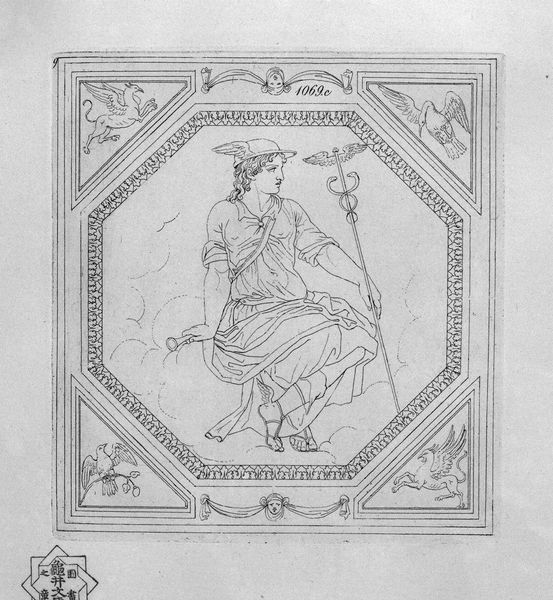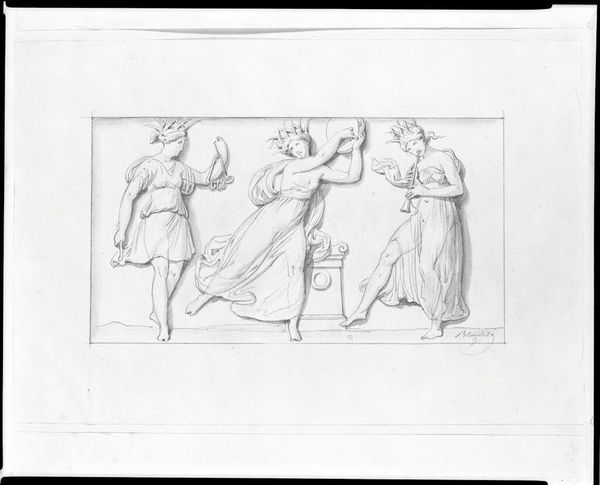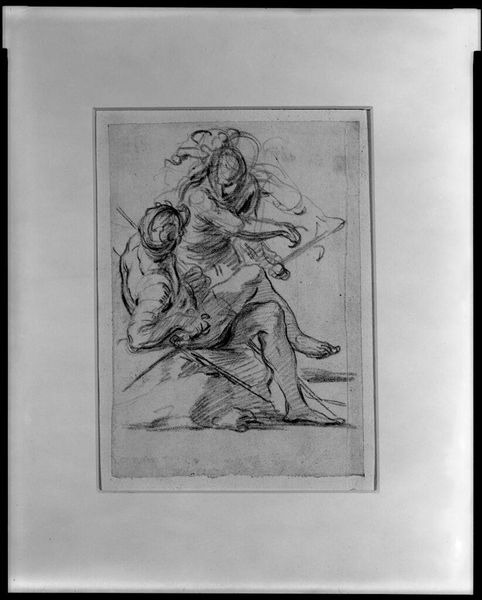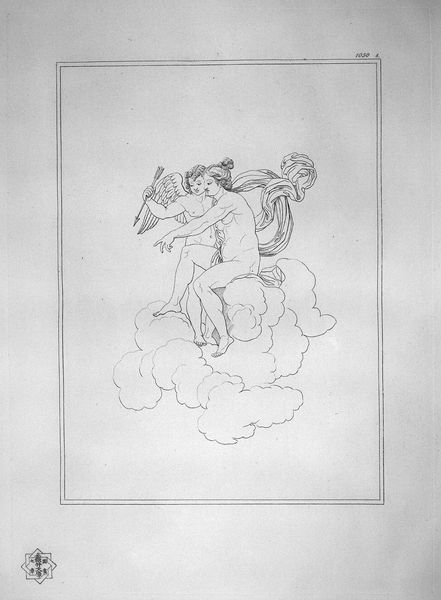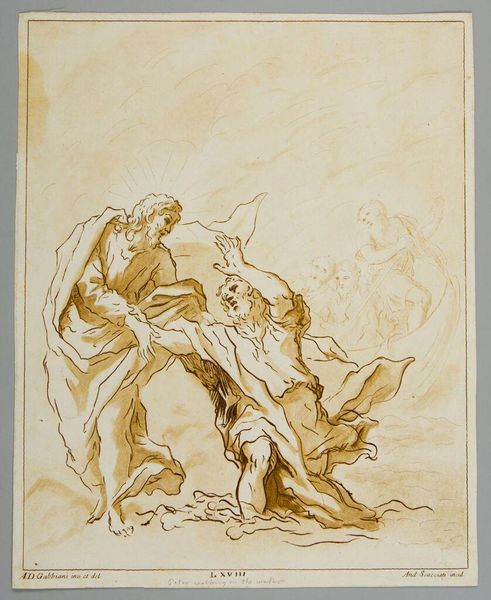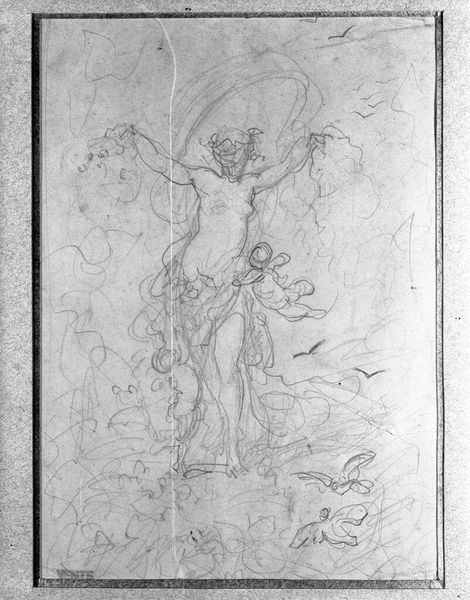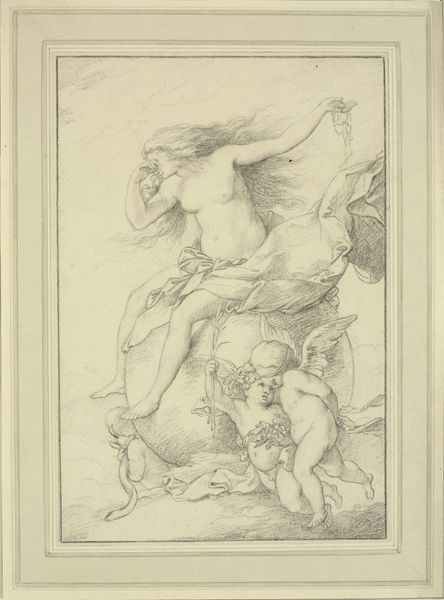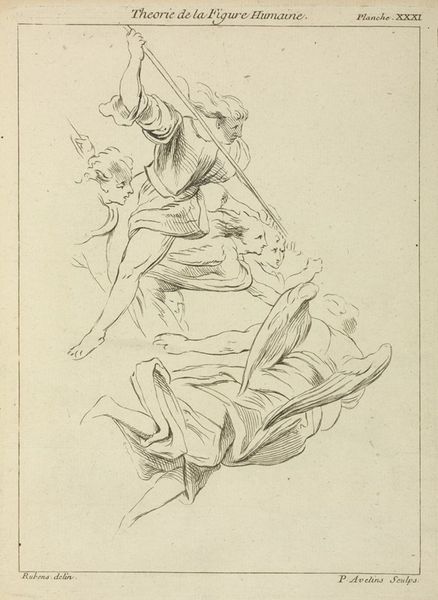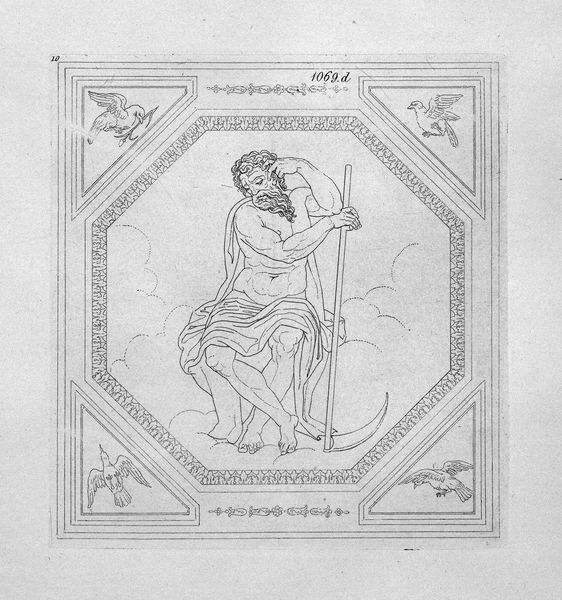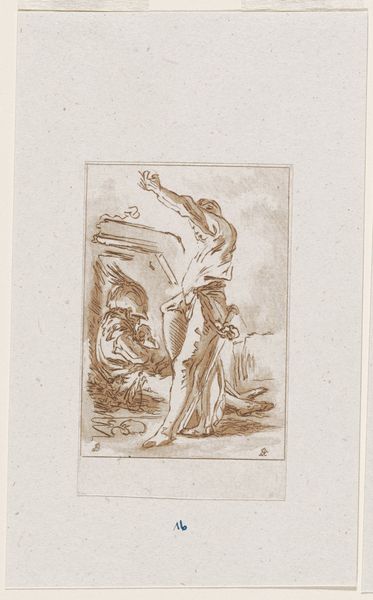
drawing, pencil
#
portrait
#
drawing
#
pencil sketch
#
greek-and-roman-art
#
figuration
#
roman-mythology
#
sketchwork
#
pencil
#
mythology
Copyright: Public domain
Giovanni Battista Piranesi created this etching, "Bacchante dancing with castanets," during the 18th century, a period defined by the artistic and intellectual movement known as the Enlightenment. Piranesi evokes antiquity, yet also offers a vision of dynamic femininity. The Bacchante, a priestess of the god Bacchus, is captured mid-dance, her drapery swirling around her, suggesting movement and liberation. What might her dance represent? During the 18th century, there was growing interest in classical antiquity and its values, but also a fascination with the power of emotion and instinct. Piranesi perhaps suggests the power and freedom embodied by female figures, in a society that was still deeply patriarchal. The castanets that she holds may represent the music and dance associated with the Bacchantes, or perhaps a symbol of female agency. Note the cherubs below, in their scene of leisure and play. This print captures a moment of ecstatic movement that still resonates with a sense of freedom and expression. How does it make you feel?
Comments
No comments
Be the first to comment and join the conversation on the ultimate creative platform.
